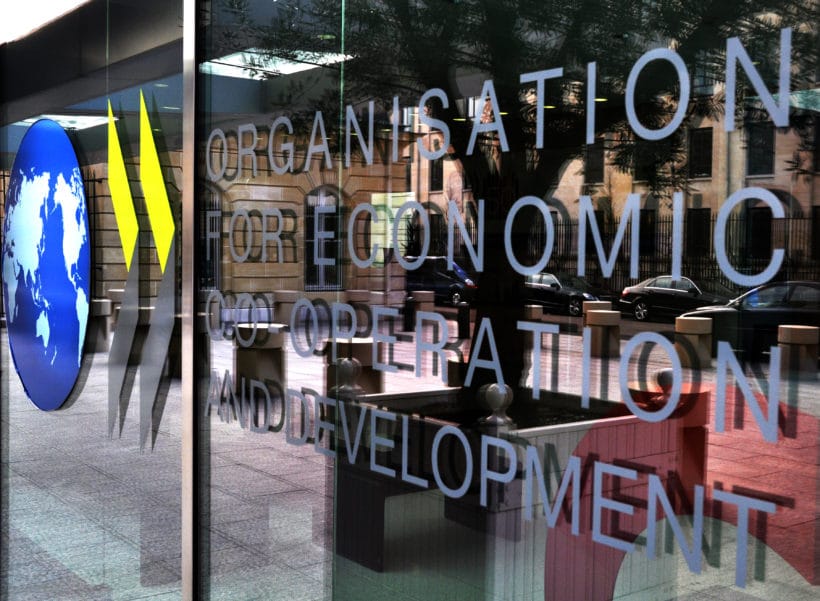
OECD Conference Centre main entrance. Paris, France.
Source: OECD/Michael Dean
NAIROBI, Oct 13 (Reuters) – Kenya refrained from signing a global tax deal because of concerns it would have to stop levying a digital services tax and worries about the agreement’s dispute resolution mechanism, officials said on Wednesday.
Last week, 136 countries agreed to a global deal that ensures big companies pay a minimum tax rate of 15% and makes it harder for them to avoid taxation.
The agreement also requires countries to repeal their digital service taxes.
Only four countries – Kenya, Nigeria, Pakistan, and Sri Lanka – did not endorse the deal.
The “numbers need some interrogation. You need to know exactly what you are getting for you to forego what you already have”, Terra Saidimu, a commissioner at the Kenya Revenue Authority, told a virtual conference.
In January, Kenya implemented a 1.5% digital service tax, which officials say has already helped curbed tax avoidance by some multinational companies.
Read more: World Court sides mostly with Somalia in border dispute with Kenya
Saidimu said 89 companies now pay such taxes. The new agreement, however, covers multinationals with global sales above 20 billion euros and profitability above 10%.
Saidimu said only 11 such companies operate in Kenya.
In Nigeria, only six global companies would fall under the new agreement, Matthew Gbonjubola, a Group Lead in Nigeria’s Federal Inland Revenue Service, told the conference.
The OECD, which steered the global negotiations, said the minimum rate would see countries collect around $150 billion in new revenues annually while taxing rights on more than $125 billion of profit would be shifted to countries where big multinationals earn their income.
“There are tens of millions of dollars at stake for Kenya and other African countries,” said Ben Dickson, Head of the Global Relations and Development Division at the OECD Centre for Tax Policy and Administration.
The agreement’s mandatory and binding dispute resolution was also a major sticking point for Kenya and Nigeria, Saidimu and Gbonjubola said.
(Reporting by Ayenat Mersie; Editing by George Obulutsa and Giles Elgood)